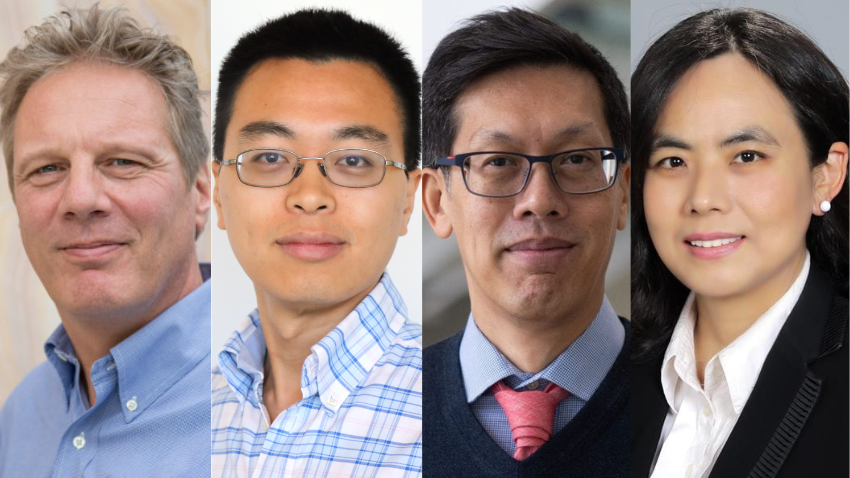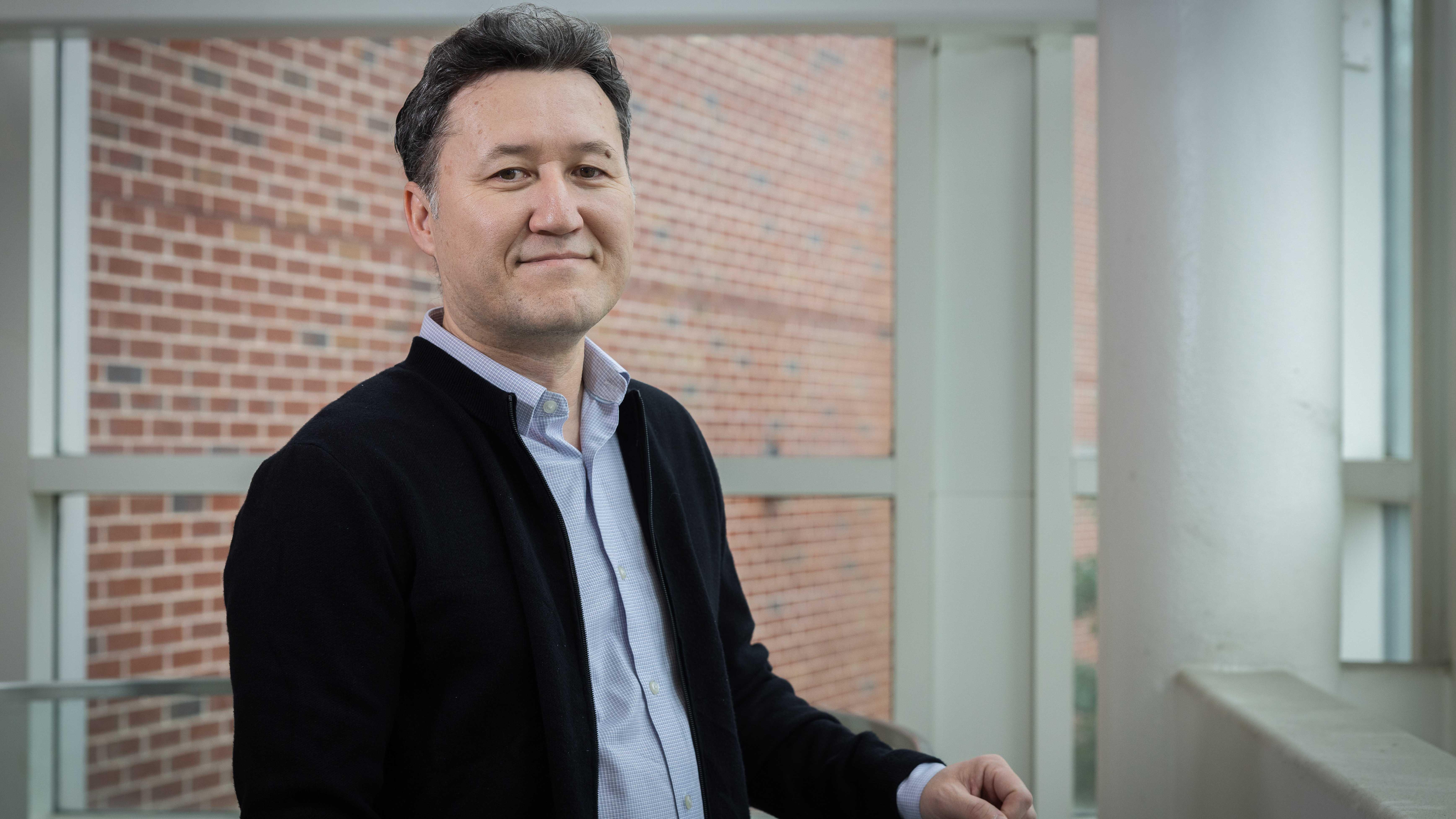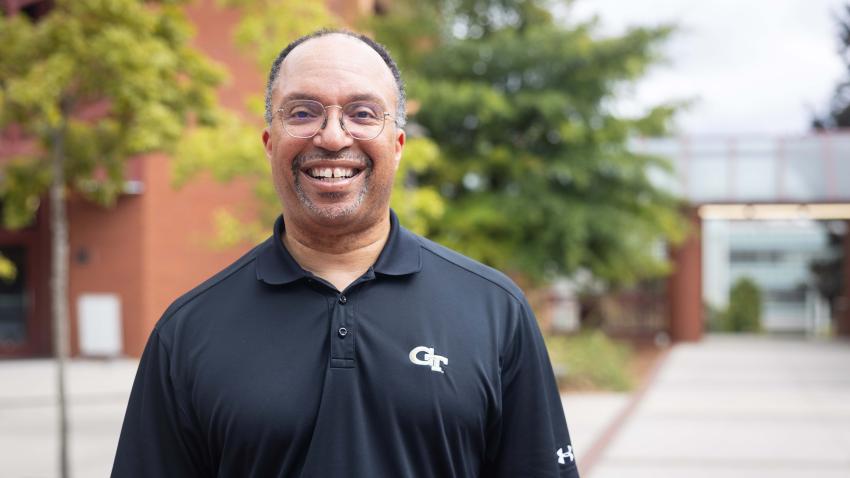
From West Point to Georgia Tech: Mark Moss on Service, Teaching, and Computing
Before joining the School of Computing Instruction (SCI) in 2017, Mark Moss spent 25 years in the U.S. Army, retiring as a lieutenant colonel. His service took him to Korea, Germany, Washington, D.C., and beyond. Still, one of his most defining roles was teaching computer science (CS) at the U.S. Military Academy at West Point.
“My first teaching opportunities were difficult. I wanted to teach very much, but it took me a while to develop the confidence I needed, and to find my voice and strengths as a teacher,” Moss said.
“I'm grateful to the Army for pushing me to be more comfortable speaking in front of others, and especially as a leader, which really helped my teaching.”
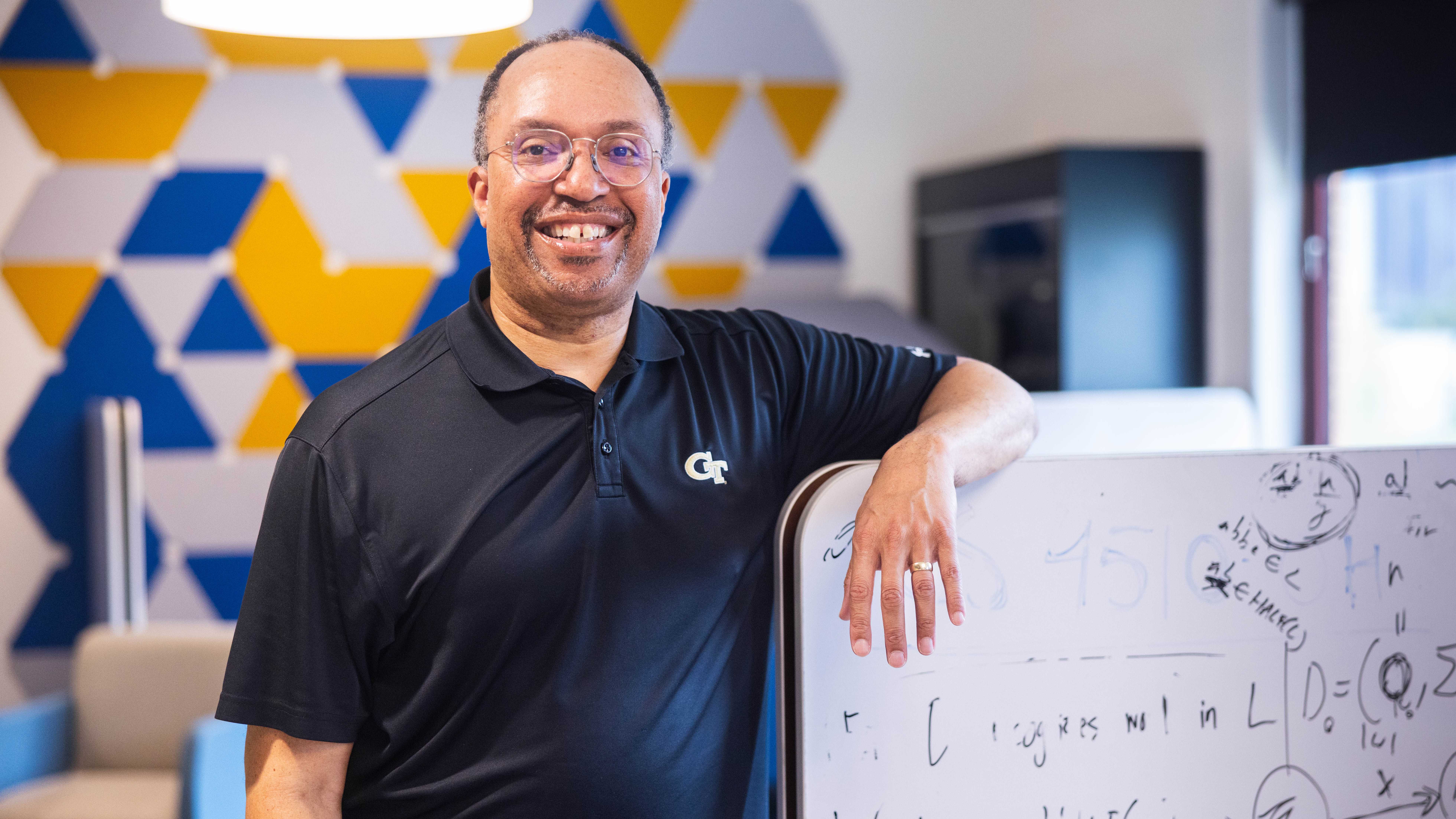
Throughout his Army career, Moss alternated between technical leadership and teaching roles. He led communications units, monitored critical systems to ensure operations weren’t disrupted, and worked with users to translate operational needs into technical requirements. In addition to teaching CS at West Point, he also taught as an adjunct professor in Washington, D.C., and Maryland.
Joining Georgia Tech
After retiring from the Army in 2015, Moss worked in the Enterprise Systems Architecture Department at the Johns Hopkins University Applied Physics Laboratory (JHU APL). A chance encounter at a conference with Charles Isbell, then dean of the College of Computing and a fellow Atlanta native and Benjamin E. Mays High School graduate, opened the door back to Atlanta.
“He invited me to consider a position in the recently formed Division of Computing Instruction,” Moss said.
He returned home to Atlanta in 2017 and has been part of SCI ever since.
Early Spark
Moss’s love of computers started long before West Point. Growing up in Atlanta, he remembers an afternoon in the library of Southwest Middle School, the day before the start of summer break. With two close friends, he tinkered with a Radio Shack TRS-80.
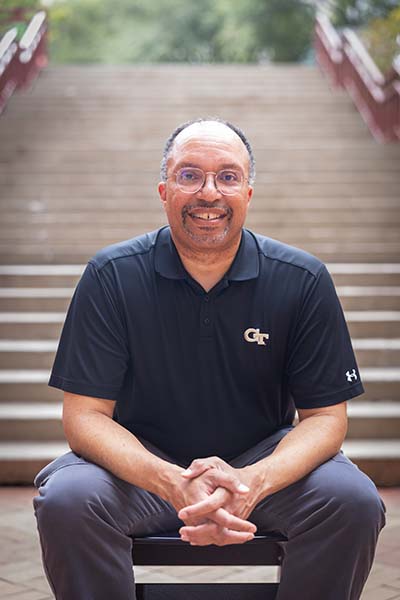
“It was a relatively simple program: about 10 lines of code in the BASIC Computer Language that made a small ‘rocket ship’ of characters move across the screen,” Moss said.
“We spent an hour or two experimenting with the program, laughing and learning as we changed lines and observed the effects. It was fun, and there was a ‘sense of power’ in being able to write the program to make the computer do what you desired. I knew I was hooked on studying CS from that moment on.”
That spark carried him through Atlanta Public Schools’ new Magnet Program in Mathematics and Science at Benjamin E. Mays High School. Advanced coursework and participation in science fairs deepened his interest, and later, at the Massachusetts Institute of Technology (MIT), an Army ROTC scholarship provided him with the resources to study and the opportunity to teach.
“Even better, I was offered the opportunity to serve part of this obligation as a CS instructor at the U.S. Military Academy at West Point, New York,” he said.
At Georgia Tech, Moss now teaches CS 2110: Computer Organization and Programming on campus, and CS 6310: Software Architecture and Design in the Online Master of Science in Computer Science (OMSCS) Program. He has also taught courses in data structures and algorithms, operating systems and networks, object-oriented design, and software engineering. One course, though, stands out.
“I have a special love for the Introduction to Database Systems (CS 4400) course,” he said. “I enjoy teaching databases because of the beautiful blend of mathematical principles and the hands-on, practical challenges of implementing tables and keys, and writing queries. And it’s especially motivating since databases are used to support so many modern, large-scale computing systems.”
Nearly two decades after first teaching database systems at West Point, Moss said he was thrilled to come to Georgia Tech.
Student-Centered Learning
Across all his classes, Moss hopes that students will leave with skills that extend beyond syntax and systems.
“I hope that they leave my classes with an ability to: analyze complex scenarios; to synthesize possible solutions to those scenarios, and to evaluate the strengths and weaknesses of their candidate solutions,” he said.
“Most of all, I want them to develop strong problem-solving processes: not being afraid to attempt a solution, assess the results, and then make their most informed determination about how to improve their approach until they reach a successful conclusion.”
For Moss, the culture within SCI is meaningful. Surrounded by colleagues who are equally dedicated to teaching, he says he values the chance to exchange lessons learned and to navigate the challenges of large classes with people who understand the work.
Advice for Educators
Moss encourages educators to share their excitement with students, to broaden their expertise across CS, and to use interactive, hands-on approaches whenever possible.
Just as importantly, he urges instructors to resist the urge to provide quick answers and instead guide students with questions that help them uncover solutions on their own, a practice he believes builds confidence and lasting problem-solving skills.
From the Army to academia, from rocket ships on a library computer to lectures on software architecture, Moss’s career reflects a lifelong dedication to problem-solving, teaching, and service.
